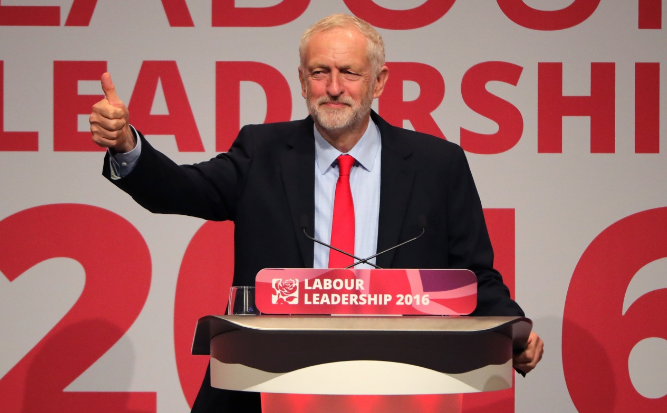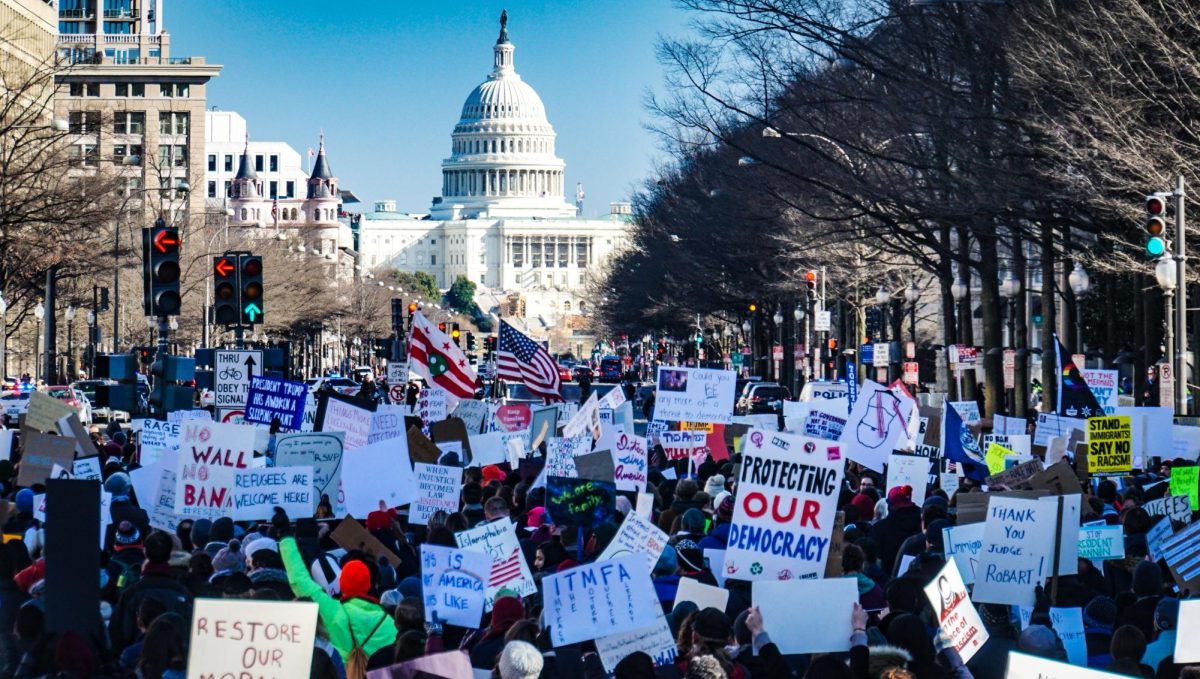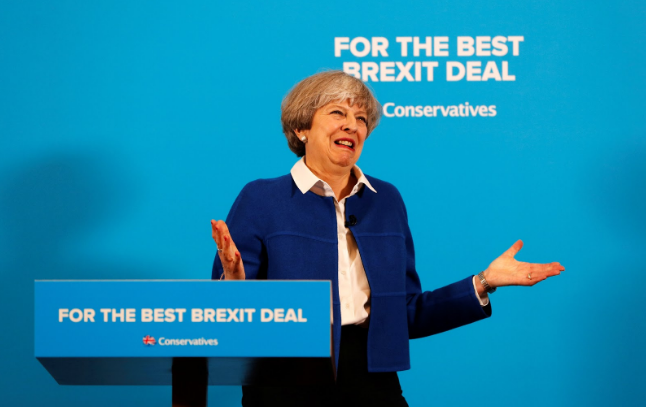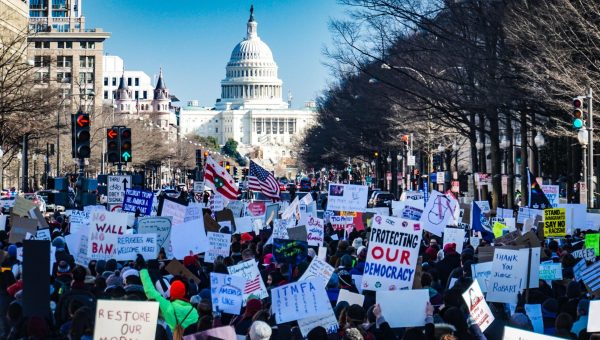UK Prime Minister May Struggles to Avoid Her ‘Brexit’ From Election
Prime Minister Theresa May speaking at an election campaign event in Wolverhampton: Image Courtesy of Darren Staples, Reuters
June 9, 2017
Stronger Together. Forward Together. A Brexit Deal For A Bright Future. For The Best Brexit Deal, Vote Conservative. This isn’t the first United Kingdom General Election in which these words have been boldly proposed, and it certainly isn’t the last in the years to follow the incumbency of Prime Minister Theresa May. At the prospect of an eventual fruition of England’s ‘Brexit’ referendum from the European Union, a thorough analysis of the sociopolitical spectrum and state of common affairs in areas such as London and the governing body that presides over Westminster would find an efficient legislature lacking a firm majority and an alarming rate of susceptibility to fundamentalist ideologists.
In retrospect, the year of 2016, in the words of former Prime Minister David Cameron, had rested upon the hinges of a “giant democratic exercise,” much to say one whose salience along with the resignation of Mr. Cameron had appalled both Europe and the entire world on a 52 to 48 percentage decision to leave the EU. Following the induction of Cameron’s fellow Conservative peer Mrs. Theresa May to the post, the unprecedented and tumultuous decision to host a snap election in April had almost seemed presidential to a varying degree, and called into question the necessity for proper leadership to execute the Brexit negotiations.
Through the course of her campaign to maintain a firm majority of Conservative seats in Parliament, Prime Minister May has centered her platform on gaining a bigger mandate on the will of the people, that is of course, to withdraw the United Kingdom’s membership from the European Union. In a simple span of two months, her strategy involved key iterations of her message to the British people, and most notably, a vehement insistence on “strong and stable leadership,” a quality she believes to possess and promises to deliver in the proactive governance of Britain and in clinching a prominent deal that would enable the UK to ensure favorable trading terms and autonomy over immigration. The issue, which has been a chief object of discussion both in the House of Lords and House of Commons, has escalated in magnitude given the recent acts of terror over the last year in London. In respects to the Socialist leader of the opposing Labour Party, Jeremy Corbyn, the Prime Minister has asserted that voters would be bludgeoned with a “tax bombshell” that would flounder not just Brexit discussions, but the overall function of the economy.
With her manifesto that contained a heavily unpopular pledge termed by the media as the “dementia tax” and the recent rise of Mr. Corbyn, polls outside Tory votership have been indicative of an excessively high estimation on May’s part regarding her chances to seize reelection. Furthermore, the rift between the two candidates has become increasingly narrow than what was earlier projected as a large marginal lead for the Conservatives, as a YouGov survey showed the Labour Party polling 39 percent compared to a mere 42 percent from the opposition just last week.

In the promise to maintain a government that not only works for the privileged few and the proposal of several business policies for the economy (such as restricting top level executive pay), the slim lead and the constant fluctuation of polls is reminiscent of similar circumstances to Mrs. Hillary Clinton in the United States, and is a potential risk of the snap election, should the Prime Minister be remiss in swaying the Parliamentary vote as her predecessor did against all odds. The greatest blow, however, and eventual abasement to the May administration came in the absence of her attendance on a nationally televised debate and doubt on her stance on central issues such as security after Britain was attacked by two separate Islamist militant attacks that collectively claimed the lives of 30 people.
Mr. Corbyn, who was initially projected as one of the more weaker contenders of the election, has arguably made remarkable strides in asserting his position as an underdog candidate, similar to President Trump. His portrayal of a radical outsider to the politics of Westminster and record of activism against Parliament is one of much attraction to the common voter, as witnessed in a multitude of recent polls, and his fabric for governance involving the nationalisation of energy supplies which would constitute more than 200 billion pounds has been often remarked as a bold proposition for many. In his own respects, Corbyn has also successfully attempted to gain the upper hand with younger voters in particular, with his social media profile gaining much awareness and support from a large consensus. Labour plans for Brexit under a Corbyn administration would essentially focus in conformity with the EU and the maintenance of single market benefits with them after membership is withdrawn in 2019.
His campaign plans, however, fail to deliver on the premise of infrastructure plans where Britons are promised free university tuitions, better pensions, and significantly higher wages on the pound. Many economists and policy analysts fear the economical impact of such promises in a market that lacks the backbone of the European Union and question the extent that Britain should even request benefits after conducting a referendum that cuts all diplomatic association with the union.
Just today, Kate Holton and David Milliken from Reuters reported an analysis of the votes after polls had closed on June 8th, finding that Prime Minister Theresa May’s Conservative Party will fail to win the election, a potentially lamentable outcome that can delay Brexit talks and plunge the strong Tory majority present in the status quo. They corroborate that “the exit poll predicted the Conservatives would win 314 seats in the 650-member parliament and the opposition Labour Party 266,” which would create a “hung parliament” (meaning that the Prime Minister would have a time limit of 5 days to create a greater majority than the opposition to retain power). The exit polls’ accuracy is currently being cross examined and checked for true verification, and if correct, may mean a win for Jeremy Corbyn and a Labour majority taking the helms of Parliament from 2017 onwards.
Predictions are now based on the Labour Party’s alliances if they win, with their chances to deliver successful Brexit negotiations when paired alongside the Scottish nationalists and the Liberal Democrats, who adamantly negate the resolution. Considering their poor relationship with May’s party and fight to escape the jurisdiction of EU courts entirely, it was hinted that the Conservatives would have no allies if the election claims a victory for Corbyn.
The future of Britain, when examined, would head into an altogether different course than what was originally sought by David Cameron in 2016 leading up to his resignation, and would undermine efforts to an entirely new brand of leadership, exempt of Theresa May. All voters around the country and spectators around the globe can do is to simply wait for the exit polls to be verified and decide the victor of the first unprecedented election in the UK’s history. Tomorrow, a new sun will rise and a new chapter will commence in the lives of many– who knows what the tide will bring?























































